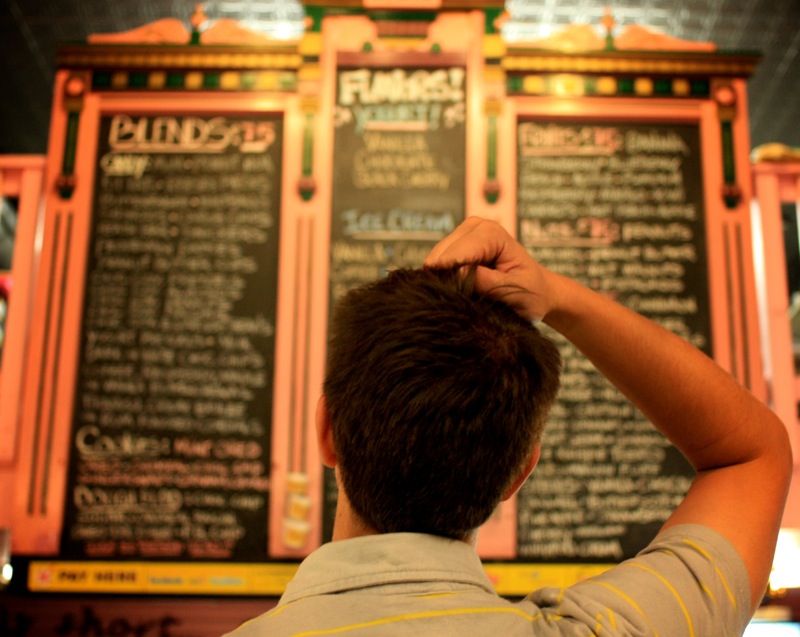Aisling Curtis | Senior Staff Writer
Our lives are replete with choice. Saturated with coffee shops and TV shows, we face a constant onslaught of “pick-me, pick-me” pleading from every product, every advert, every shop on our overwhelmed streets. Over the years, this choice has liberated us: alongside increased varieties of tea, we now have a larger selection of careers and countries, where to settle and who to settle with, how many children to have or whether to have children at all. Choices are no longer A-B alternatives, but the entire swathe of the alphabet, laid at our feet for us to select.
Naturally we want choices, decry constriction and the narrow gendered roles men and women have traditionally been herded into. But many have argued that opportunity breeds regret – and the greater the opportunity, the more regret a person is doomed to feel. For some of us, the aggressive plethora of options paralyses, the fear of regretting your decision stopping you from making a decision at all. What if it’s the wrong one? What if you should have chosen one degree instead of the other? What if you had done that Erasmus year or that Masters or taken Spanish for the Leaving instead of French? The harsh, unforgiving glare of hindsight lays us bare.
Choices are no longer A-B alternatives, but the entire swathe of the alphabet, laid at our feet for us to select.
Regret, as an intrinsically negative emotion, can be dangerous, leading to the chronic stress and repetitive self-blame characteristic of depression and other mental disorders. In his book The Paradox of Choice, Barry Scwartz states that too much opportunity creates anxiety and stress, exacting a debtating effect on happiness. Though it seems a disgracefully first-world problem to complain of too much choice, when the majority of people are hampered by lack of it, it’s an issue that will come to affect more and more as globalisation sweeps up the rest of the world.
The biggest regrets tend to be related to education, career, and romance – choices that we have a plethora of options for. Subjects in secondary school, languages dropped, career paths closed off, degrees selected that later turned out to be a mistake: all accumulate to form an anxious mass. We feel greater and more insurmountable regret for reversible decisions that we did not reverse; and for cases of inaction, compared to those where a decision was made. Short-term, we may feel greater regret for tangible action taken; but longterm our thinking centres upon things we feel would have improved our lives.
But how do we avoid the anxiety, while still benefiting from the choice? Sadly, pychologists aren’t so sure. Since retiring from all the variety of modern life is likely not an option – and we do want to benefit from all those degree programmes and study-abroad chances and macha coffee flavours – theres not exactly a clear-cut solution to the anxiety of choice.
Regret, as an intrinsically negative emotion, can be dangerous, leading to the chronic stress and repetitive self-blame characteristic of depression and other mental disorders.
Maybe just an awareness of the complexities of the world we inhabit, of the options that we face that our ancestors would never have dreamed of – and so we aren’t prepared for. Maybe an acknowledgement that whatever choices we made in the past seemed right to the person we were at that time, with the information we were presented with, and we can’t fault that version of ourselves when armed with hindsight now. Maybe an understanding that it’s fruitless to dwell on the different routes you could have walked, when you haven’t and you won’t and you can’t change that.
As Schwartz said in his TED talk on the subject, “the secret to happiness is low expectations”. Maybe it’s something to keep in mind.
Photo by Kaytee Riek







